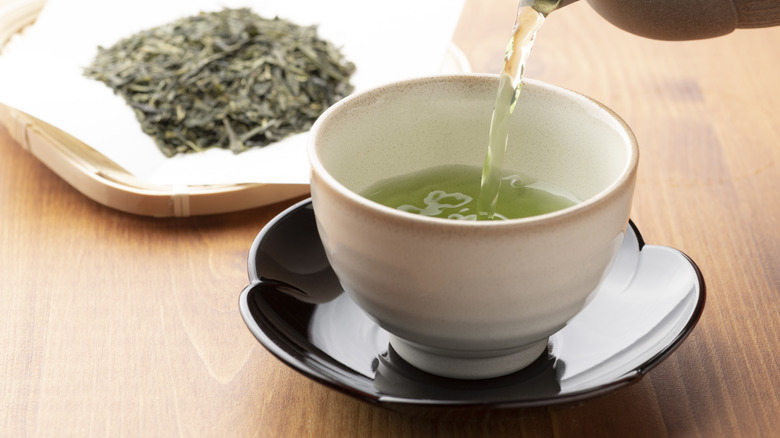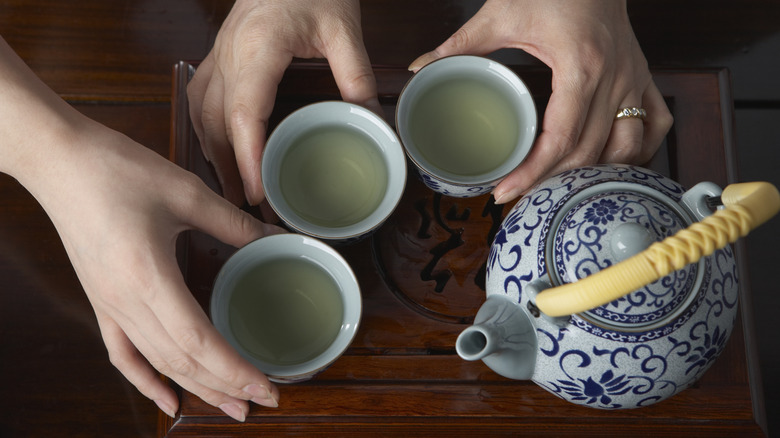Green Tea May Not Be The Best Beverage For Hydration
Most people will tell you they know they probably should drink more water. Eight glasses a day has been the status quo for quite some time, but it's not so cut and dry. While there is currently no recommended daily intake of water per the CDC, The U.S. National Academies of Sciences, Engineering, and Medicine suggests men drink 15.5 cups of fluid per day and women consume 11.5 cups. If you're looking to up your aim to those levels — but get a little bored of water — you may think to substitute in other beverages in the hopes of hitting the mark.
However, not every beverage is built the same way when it comes to hydration. Even healthy beverages such as green tea, which has been proven to come with a whole host of benefits, can have a diuretic effect. That means they won't be getting you any closer to your hydration goals. Green tea was actually used in traditional Chinese and Indian medicine to help pull fluids out of the body. It contains caffeine and is classed as a stimulant. Caffeine is known to be a diuretic that increases blood flow to your kidneys and therefore prompting more trips to the bathroom.
How dehydrating is green tea?
While green tea may not be the best beverage for hydration, it is unlikely to have an active dehydrating effect on you unless you're consuming it in large quantities. A study found that you'd need to consume about 6 to 13 cups of tea, per day in order to get dehydrated. But it's worth keeping in mind other diuretic sources you consume. These might include coffee, caffeinated teas (including black, oolong, and white tea), and other teas like dandelion, hibiscus, and yerba mate. It's all about quantity when it comes to their diuretic properties — as they can add up.
It's also worth noting If you consume other sources of caffeine throughout the day. Excess caffeine can have negative consequences such as irritability, insomnia, heart palpitations, and dizziness, according to Mount Sinai. A few cups of green tea come with a lot of health benefits and will not dehydrate you. But from a hydration standpoint, it does not count as a substitute for water.

